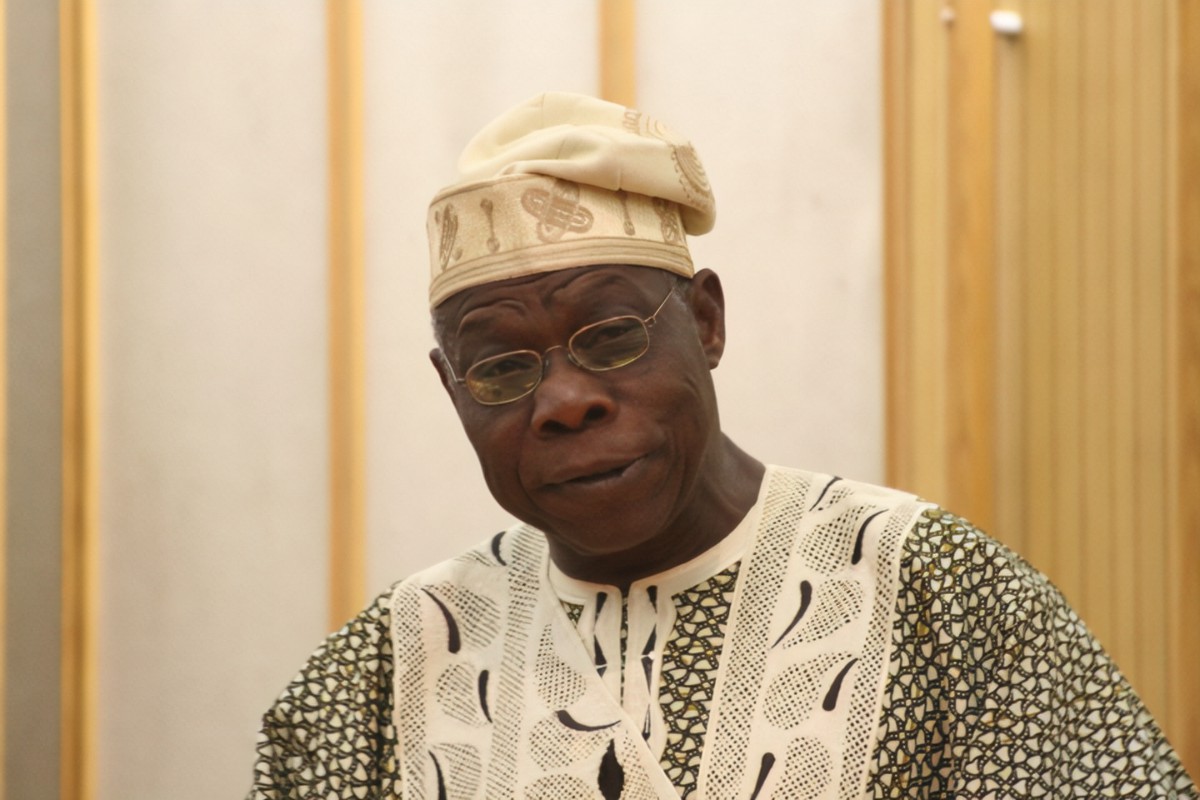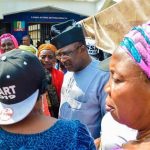The December 4, 2005 edition of SUNDAY SUN carried a report which alleged that the National Security Adviser, General Aliyu Gusau, was on the verge of resigning his appointment, in order to prepare for the next elections in 2007, during which he is almost likely to run for presidency. The report elaborately analysed all the political issues and the intrigues, within the military wing of the political elite, on the prospects of the Aliyu Gusau candidacy, especially as it relates to an exit strategy for Obasanjo, and the prognosis beyond 2007. I found it instructive that the SUNDAY SUN’S report underlined that the prospective Gusau candidacy meant that Obasanjo “would be installing someone who is sure to protect his interest when he eventually leaves office-someone who would not be too ‘distracted’ by any form of unwarranted probes.” This quotation goes to the heart of what I want to describe as the post-power Obasanjo dilemma. I have talked about this dilemma in the past on these pages. Any perceptive observer of the Obasanjo presidency, with its an anarchic disorder, its incurable propensities for illegalities and unconstitutional rule, would be able to come to the conclusion that Obasanjo must be consumed with a deep-seated fear of what might happen to him when he vacates office at the end of his tenure in May 2007. Obasanjo’s years in power have been some of the most lawless in the history of democratic rule in Nigeria; that sounds almost contradictory, since democracy is predicated on respect for constitutional order, rule of law and the separation of powers, amongst many other basic norms. However, Nigerians brought home an ant-ridden faggot, in the old military dictator called Obasanjo, and since 1999, we have been receiving the visits of the lizards of illegalities, as the old proverb says. The third term agenda took a life of its own largely because Obasanjo became convinced that he might not have a suitable exit strategy that will him from the wrath of the Nigerian people. He would have become even more terrified by the items of gross misconduct that the MDDIMRD leveled against him at the news conference of December 2005. The truth is that long after he has been eased out of power, at the expiration of his tenure in May 2007, Obasanjo will be going back and forth, along with his closest collaborators, answering questions from the Nigerian people for the various crimes he committed against our country, while he was in power. The MDD/MRD check list is very interesting, and they include the forgery of the Electoral Act of 2002; refusal to implement successive budgets passed by the National Assembly; willful and serial contempt of courts and refusal to abide with court orders; reckless expenditure not appropriated by the National Assembly; corrupt inducement of members of the National Assembly to get them to remove their principal officers and the military invasion of Odi, Zaki Biam, Warri and Yenagoa, amongst several other acts of presidential illegalities. However, the greatest crimes that Obasanjo has committed against the Nigerian people have been economic. His entire economic policies have been unconstitutional; and his regime of privatization of our national assets; the import waivers for his cronies; the illegal sales of government houses; the money wasted on roads projects, especially between 1999 and 2003; these are some of the major crimes that Nigeria would have to devote a considerable amount of time and resources to unraveling, after Obasanjo must have vacated power in May 2007. Obasanjo, as Nigeria’s Minister of Petroleum Resources has run this most vital part of our national life like a secret cult, whose entrails are only accessible to himself and a few cronies. The regime of transparency is not functional in Nigeria’s oil accounts under Obasanjo; it was therefore no surprise that the Revenue Mobilisation and Fiscal Allocation Commission came out in 2002 that over N300 billion was unaccounted for in Nigeria’s oil revenues. In fact, oil money has been the base of the illegal spendings that became centrally associated with Obasanjo’s presidency. The oil industry that for long was run as a bastion of state capitalist development, under Obasanjo, was turned into a monopoly terrain for a few cronies who became a very powerful cartel of oil importers, working at the behest of Obasanjo, to run a ring around the Nigerian people. They manipulate artificial scarcities in order to trigger a regime of fuel price hikes and consequently, further deepen the pains and suffering of the Nigerian people. If people had speculated in the past about the rot in the Nigerian oil industry and Obasanjo’s total surrender to the oil importation lobby, that speculation was cleared by no less a person than Dr. Jackson Gaius-.Obaseki, former Group Managing Director of the Nigerian National Petroleum Corporation, through whom Obasanjo ran the industry between 1999 and his removal about two years ago. The VANGUARD newspaper of December 8, 2005 carried an editorial it titled OBASEKI’S FUEL BOMB. It quoted an interview Obaseki had given a newspaper on the regimes of fuel scarcity under Obasanjo, and how in fact it was artificial. “The scarcity was not real”, Obaseki had revealed, “people (granted licences to import fuel) became millionaires overnight. It was either you protected the (cartel’s) interest or the interest of Nigerians”. Mr. Gaius-Obaseki said he was protecting Nigerians against the cartel members, for who he signed contracts to import fuel, which our own refineries could have produced if they were not deliberately sabotaged, surmised the VANGUARD editorial. So between Obasanjo as Petroleum Minister and members of this all-powerful cartel of oil importers there must have been an ‘accord concordiale’ to ensure that Nigeria’s economy is run on the basis of imported fuel, from which a few individuals close to Obasanjo became fabulously enriched; meanwhile, Nigeria’s refineries were not made to work, no efforts were made to build new ones, and from 1999 we have had to live with the bizarre situation of being one of the largest oil exporting countries in the world which had to run its life on the basis of import fuel products. Obasanjo’s oil policy is one of the most unpatriotic segments of his disastrous rule of Nigeria. Yes, Obasanjo has been a most incompetent President, arguably the most incompetent ruler Nigeria ever had in a democratic setting; however, he seemed to have surpassed even himself in the vital oil sector. His brazen hand over of that industry to a tiny clique of importers of fuel products represents a major crime against our country, which a post-Obasanjo, patriotic regime must examine in the finest detail, to confiscate illegally acquired wealth and to punish severely, as deterrence for the future and as catharsis for the pains of the years of locust under Obasanjo. The revelations by Gaius-Obaseki about the powerful presence and influence of members of the oil importation cartel, also gives us another glimpse into why these characters have been at the forefront of the campaign for Obasanjo’s third term agenda. The crony of oil importers; import waivers profiteers; those who have bought our national assets in Obasanjo’s privatization program, all know that their illegally acquired wealth are tied directly to Obasanjo’s presidency. This is why they have been at the forefront of the manipulative moves to ram down our throats the third term agenda. There is a great deal of work to do by Nigeria, at the end of the Obasanjo presidency in the years between 1999 and 2007, we would have gone through eight years of the disastrous implementation of neo-liberal economic policies, only tempered by the peculiar Nigerian conditions within which the Obasanjo clique imposed their policies. The economic policies have exacerbated poverty in Nigeria; they have deepened regional disparities in wealth; the policies have been responsible for the transfer of public assets into the hands of a few cronies of Obasanjo, and finally, these policies have eroded our national sovereignty and objectively damaged our independence. The Obasanjo clique have also presided over and even manipulated the old divides in Nigeria’s history in a way that such divides have pushed people in all directions of extremities that do not work well for the stable development of Nigeria. In a lot of instances, it is Obasanjo himself that has been responsible for the manipulation of these old divides and their active revival. A post-Obasanjo Nigeria must be one that makes a decisive break with the horrible economic records of the Obasanjo years. The economic performance was clearly the most glaring arena of the failure of Obasanjo’s leadership. The reason for that is related to the absence of a patriotic intention in the cobbling together of that economic program. The local ideologues of the economic policies that Obasanjo has implemented with a missionary zeal, and with utter disregard for its human cost, are in fact doing the biddings of imperialism. It is therefore important to make a decisive break with the economic policies and the economic team as well. We have to decisively defeat Obasanjo and his economic team, post-2007, by ensuring that the policies are no longer implemented, because they were not fashioned by the authors of those policies (the international financial institution such as IMF and World Bank), to serve Nigeria’s economic interests. The post-Obasanjo economic agenda for Nigeria must be patriotic, bringing back the state as the engine of growth of our national economy. The state must consciously take the decisions to invest in very strategic sectors of the economy, to achieve an integrated economic life: vital investments must be directed into railways development, the iron and steel sector and the power and refineries sectors along with social spendings to improve human capital, education, health care delivery and a targeted program to reduce unemployment through public works. Such investments cannot be left to a private sector that is not national and does not share our national ideals of an accelerated growth to end underdevelopment. The so-called private sector that Obasanjo has, nurtured and pampered i one that is weak, unpatriotic and interested in quick profits (sha yanzu, magani yanzu), and which expatriates easy profits out of Nigeria. It is only a consciously engineered state intervention that can ensure the balanced development of Nigeria’s productive forces. It will be very important to revisit the Second National Development Plan, to recover the essential background for the type of development of the country that we need to be aiming for, only that such a process must be informed by the developments in the contemporary setting around the world. The voodoo economics of neo-liberal capitalism has opened an avenue for a few individuals to become very rich, under Obasanjo’s benevolence in the past few years. However, every sane Nigerian now knows that those policies cannot remove the pains, anger, frustration and alienation that they have deepened in Nigeria, since Obasanjo came to power. We need an economy working for the Nigerian people, and that must be an engaging reality of the post-Obasanjo years, after May 2007.


